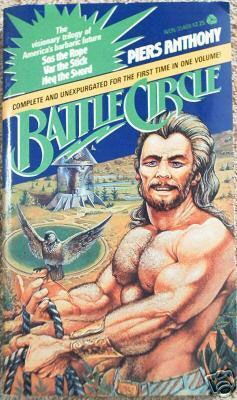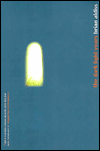
Player Piano, by Kurt Vonnegut
Book Review by James Michael White
—Chapter 1
What if America as we know it were ruled by machines and, in an only slightly lesser way, the managers and engineers who kept them running? Would this America then devalue the scope of human endeavor that did not likewise support the well-oiled and efficiently running machine of the resulting society?
Yeah. Pretty much. Or at least that's both premise and conclusion of Player Piano, Kurt Vonnegut's first novel, published way back in 1952, in which he constructs a world stratified by intellect rather than hard work, a world in which the super-IQ'd Dr. Paul Proteus—"the most important, brilliant person in Illium"—does little more than manage a series of automated machines busily producing all of the things that mankind could ever want. Well, most of the material things, anyway. You see, while the material needs of Vonnegut's future America are well met, the spiritual ones languish. And here we're not talking "spiritual" in the necessarily religious sense, but rather all of those things that instill in a man's spirit a sense of usefulness, of being needed.
Dr. Paul Proteus, only thirty-five and apparently destined to follow in his father's footsteps to become the über manager of American production, eventually reaches this conclusion. But along the the garden path to this epiphany, we see his dissatisfaction at work, his observation of the machines that have replaced good men; we see his lackluster and perfunctory (one might even say mechanical) relationship with his wife, Anita; we witness the political gamesmanship of shifting for better position, advantage, and the unspoken fear of not fitting well enough into the increasingly restrictive social machine as one climbs up its rungs and ladders; but most of all, we get to see, through Dr. Paul Proteus's eyes, how the less-smart-than-he live, how the no longer useful masses are tendered after like pets who are allowed material comfort but no self direction. After all, if one's IQ score isn't high enough, and high enough in the proper areas (engineering or managing), this future society has no place for you. What's more, there's no longer even any room to aspire to anything.
As one might expect, there's an underground of grumbling and revolution in the air, and though most of it comes from the ground up—those who who do not fit into the IQ machine mold—some of it comes from unexpected places, and it's the latter that embroils Dr. Proteus in a typically Vonnegutian swirl of wry, dreary, preachy, and fatalistic plot machinery by which he is almost exclusively victimized, or of which he is merely observant. Case in point, when Dr. Proteus ventures outside his privileged life to see how the other half lives, he runs across Reverend James J. Lasher, who tells him in no uncertain terms:
When I had a congregation before the war, I used to tell them that the life of their spirit in relation to God was the biggest thing in their lives, and and that their part in the economy was nothing by comparison. Now, you people have engineered them out of their part in the economy, in the market place, and they're finding out—most of them—that what's left is just about zero.
The sentiment is repeated in a number of different speeches and other scenarios that all give voice to what must have been an emerging concern in 1952, in which a new industrial age would introduce human obsolescence and rampant ennui, but in each repetition there is a growing sense that Vonnegut is just talking about his subject without actually showing it. In other words, the day-to-day life of those trapped below the IQ line is never fully realized on the page, nor really felt, either, in which case Player Piano comes off as narratively isolated as its protagonist is socially. We see, but don't really feel, the injustice, and the resulting drama isn't so much dramatic as it is a merely watered down collection of worry.
Sans visceral kicks, Vonnegut's first novel nonetheless showcases everything that he consistently used throughout his literary career, which is a point of view concerned with the tragic and absurd ironies of human existence.
|
Click here to buy Player Piano, by Kurt Vonnegut on Amazon
|
Player Piano, by Kurt Vonnegut on Amazon

| More Books You Might Like |
| Comments on Player Piano, by Kurt Vonnegut |
| There are no comments on this book. |



